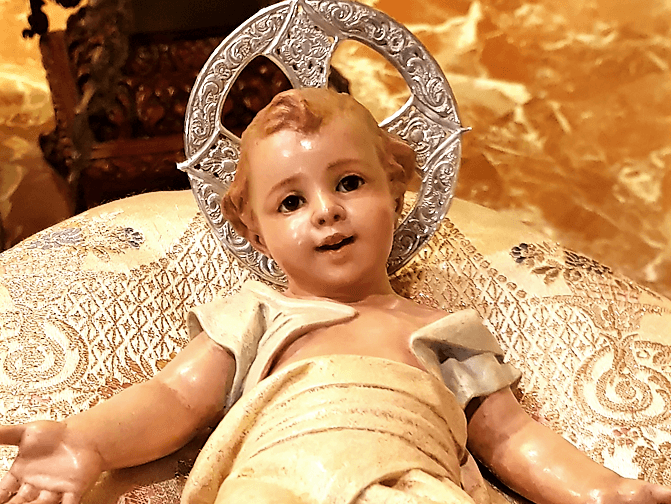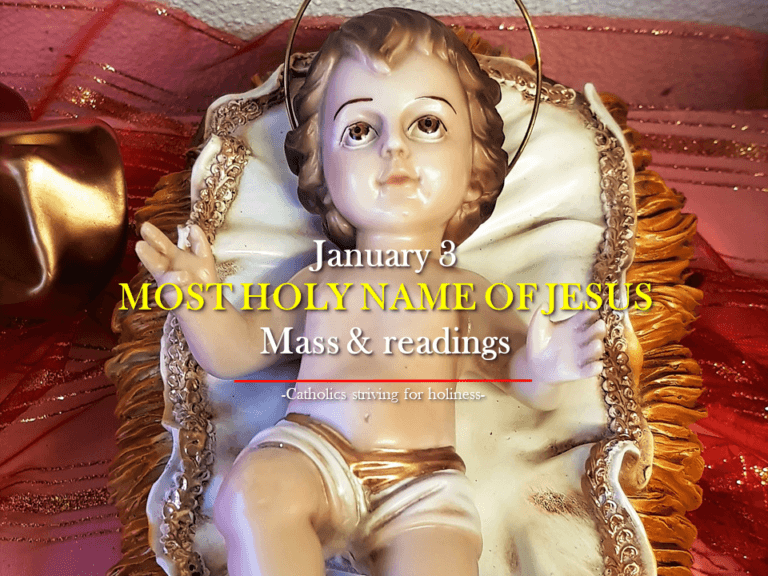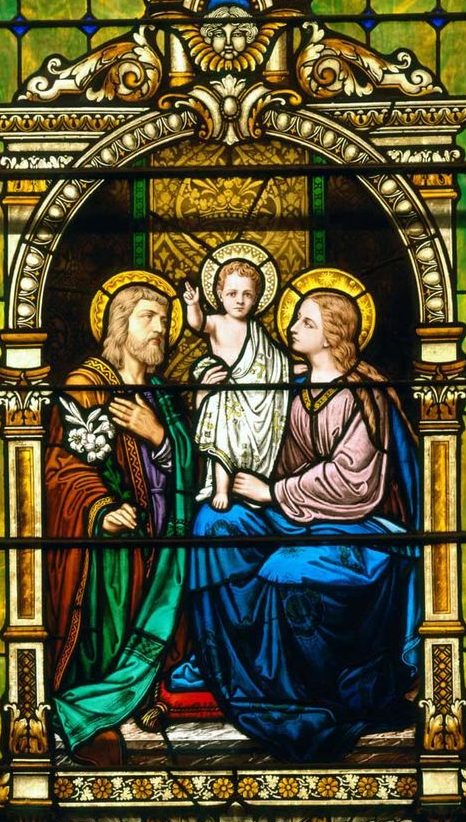POPE FRANCIS’ REFLECTION ON THE LAST DAY OF THE YEAR (DEC. 31)

FULL TEXT HOMILY OF THE HOLY FATHER FRANCIS
FIRST VESPERS OF THE SOLEMNITY OF MARY HOLY MOTHER OF GOD
AND TE DEUM OF THANKSGIVING FOR THE LAST DAY OF THE YEAR
HOMILY OF HIS HOLINESS POPE FRANCIS
St Peter’s Basilica
Sunday, 31 December 2023
_________________________________________
Faith enables us to live this time in a different way compared to a worldly mentality. Faith in Jesus Christ, God incarnate, born of the Virgin Mary, offers a new way of feeling time and life. I would summarize it in two words: gratitude and hope.
One might say, “But isn’t this what everyone does on the last evening of the year? Everyone gives thanks, everyone hopes, believers and non-believers alike”. Perhaps it may seem that way, and if only it were! But in reality, worldly gratitude, worldly hope are evident: they lack the essential dimension that is the relationship with the Other and with others, with God and with our brethren. They are focused on the self, on its interests, and so they are very short-winded, they do not go beyond satisfaction and optimism.
Instead, in this Liturgy that culminates in the great hymn Te Deum Laudamus, one breathes an entirely different atmosphere: one of praise, of wonder, of gratitude. And this happens not because of the majesty of the Basilica, not because of the lights and the hymns — these things are, rather, the consequence — but because of the Mystery that the antiphon of the first Psalm expressed thus: “O admirable exchange: the creator of human-kind, taking on a living body, was worthy to be born of a virgin, and … has given us his deity in abundance”. This admirable exchange!
The Liturgy allows us to enter into the sentiments of the Church; and the Church, so to speak, learns them from the Virgin Mother.
Let us think of what the gratitude in Mary’s heart must have been like as she watched the newborn Jesus. It is an experience that only a mother can have, and yet in her, in the Mother of God, it has a unique, incomparable depth. Mary knows, she alone with Joseph, where the Child comes from. And yet he is there, he breathes, he cries, he needs to eat, to be swaddled, cared for. The Mystery leaves room for gratitude, which flourishes in the contemplation of the gift, of gratuity, whereas it is stifled by the eagerness to have and to appear.
The Church learns gratitude from the Virgin Mother. And she also learns hope. One would think that God chose her, Mary of Nazareth, because he saw his own hope reflected in her heart. The hope that he himself had infused into her with his Spirit. Mary has always been filled with love, filled with grace, and is therefore also filled with trust and hope.
That of Mary and the Church is not optimism. It is something else. It is faith in God who is faithful to his promises (cf. Lk 1:55); and this faith takes the form of hope in the dimension of time, we could say “on the move”. The Christian, like Mary, is a pilgrim of hope. And this is precisely the theme of the Jubilee of 2025: “Pilgrims of hope”.
Dear brothers and sisters, we might ask ourselves: is Rome preparing to become the “city of hope” during the Holy Year? We all know that the organization of the Jubilee has been underway for some time. However, we are well aware that, from our perspective here, it is not principally about this. Rather, it is a question of the witness of the ecclesial and civil community, a witness that, more than events, consists in a life-style and in the ethical and spiritual quality of coexistence. And so the question one might ask is this: are we working, each person in his or her own sphere, so that the city may become a sign of hope for those who live there and those who visit?
An example: entering Saint Peter’s Square and seeing people of every nationality, of every culture and religion, move freely and calmly in the embrace of the Colonnade, is an experience that instils hope; but it is important that it be confirmed by a good reception in the visit to the Basilica, as well as by the information services. Another example: the charm of the historic centre of Rome is perennial and universal, but the elderly or those with motor disabilities should also be able to enjoy it; and the “great beauty” should correspond to simple decorum and the normal functioning of places and situations in ordinary, everyday life. Because a city that is more liveable for its citizens is also more welcoming to everyone.
Dear brothers and sisters, a pilgrimage, especially if it is demanding, requires good preparation. Therefore, the coming year, which precedes the Jubilee, will be devoted to prayer. An entire year devoted to prayer. And what better teacher could we have than our Holy Mother? Let us place ourselves in her school: let us learn from her how to live every day, every moment, every occupation with the inner gaze turned towards Jesus. Joys and sufferings, satisfactions and problems. All in the presence of and with the grace of Jesus, the Lord. All with gratitude and hope.
____________________________________________
L’Osservatore Romano, Weekly Edition in English, Fifty-sixth year, number 1, Friday, 5 January, 2023, p. 7.
Source: https://www.vatican.va/content/francesco/en/homilies/2023/documents/20231231-omelia-te-deum.html
EMPHASIS MINE.
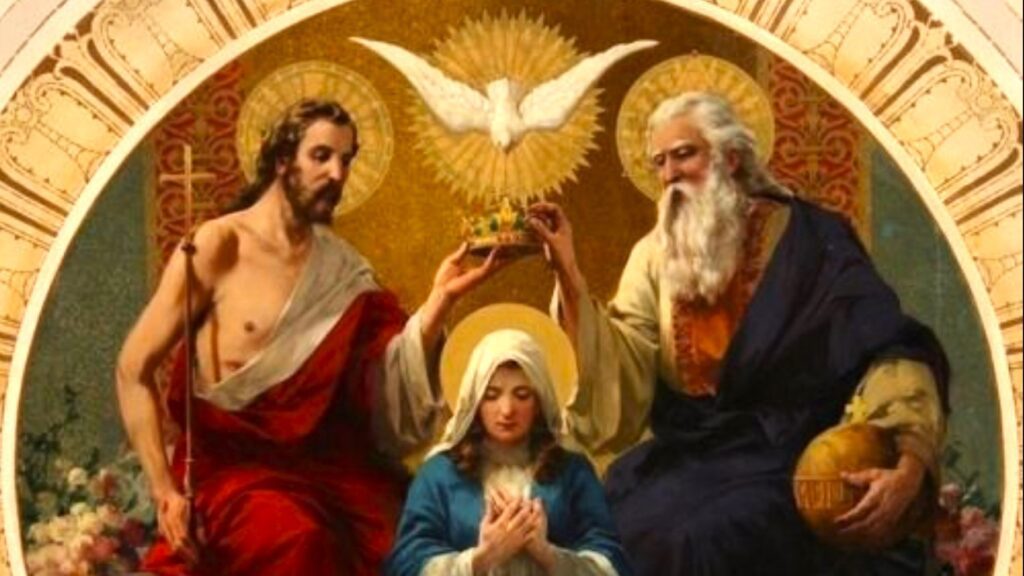
HOMILY OF HIS HOLINESS POPE FRANCIS
St Peter’s Basilica
Saturday, 31 December 2022
_________________________________________
“Born of a woman” (Gal 4:4).
When, in the fullness of time, God became man, he did not come swooping down into the world from heaven on high. He was born of Mary. He was not born to a woman but of a woman. This is essentially different – it means that God wanted to take on flesh from her. He did not use her, but asked for her “yes”, for her consent. And so, with her began the slow journey of the gestation of a humanity free from sin and filled with grace and truth, filled with love and faithfulness. A beautiful, good and true humanity, made in the image and likeness of God, but at the same time, woven with our flesh offered by Mary…never without her…always with her consent…in freedom, gratuitously, respectfully, in love.
And this is the way God chose to enter into the world and to enter into history. This is the way. And this way is essential, as essential as the very fact that he came. The divine motherhood of Mary – virginal motherhood, fruitful virginity – is the way that reveals God’s utmost respect for our freedom. He who created us without us did not want to save us without us (cf. S. Agostino, Sermon CLXIX, 13).
The way he chose to come to save us is the way on which he also invites us to follow him so as to continue to weave humanity – new, free, reconciled – together with him. This is the word: reconciled humanity. It is a style, a way of relating to us, from which derives the multiplicity of human virtues of good and dignified living together. One of these virtues is kindness, as a way of life that fosters fraternity and social friendship (cf. Encyclical Fratelli tutti, 222-224).
And speaking of kindness, at this moment, my thought naturally goes to dear Pope emeritus Benedict XVI who left us this morning. We are moved as we recall him as such a noble person, so kind. And we feel such gratitude in our hearts: gratitude to God for having given him to the Church and to the world; gratitude to him for all the good he accomplished, and above all, for his witness of faith and prayer, especially in these last years of his recollected life. Only God knows the value and the power of his intercession, of the sacrifices he offered for the good of the Church.
And this evening, I would like to repropose kindness also as a civic virtue, thinking in particular of our diocese of Rome.
Kindness is an important aspect of the culture of dialogue, and dialogue is indispensable to live in peace, to live as brothers and sisters, who do not always agree – this is normal – but who nevertheless speak to each other, listen to each other and try to understand each other and to move toward one another. We only need to think of what the “world would be like without the patient dialogue of the many generous persons who keep families and communities together. Unlike disagreement and conflict, persistent and courageous dialogue does not make headlines, but quietly helps the world to live better” (ibid., 198). Kindness, then, is a part of dialogue. It is not only an issue of “good manners”; it is not a question of “etiquette”, of courteous behaviour…. No. This is not what we mean when speaking of kindness. Instead, it is a virtue to be retrieved and practiced every day in order to go against the tide and to humanize our societies.
The harm of consumeristic individualism is before everyone’s eyes. And the most serious damage is that others, the people who surround us, are perceived as obstacles to our tranquillity, to our well-being. Others “inconvenience” us, “disturb” us, rob us of the time and resources to do as we please. Our individualistic and consumeristic society tend to be aggressive, since others are competitors with whom to compete (cf. ibid., 222). And yet, within these very societies of ours, and even in the most difficult situations we face, there are individuals who demonstrate how it is possible to “cultivate kindness” and thus, by their style of life, they “become stars shining in the midst of darkness” (ibid.).
Saint Paul, in the same Letter to the Galatians from which the Reading for this liturgy is taken, speaks of the fruit of the Holy Spirit among which one is mentioned using the Greek word chrestotes (cf. 5:22). This is the one that we can understand as “kindness”: a benevolent attitude that sustains and comforts others and avoids any form of roughness and harshness. It is a way of treating one’s neighbour taking care not to be hurtful through words or actions; trying to lighten others’ burdens, to encourage, to comfort, to console, without ever humiliating, mortifying or despising (cf. Fratelli tutti, 223).
Kindness is an antidote against several pathologies of our societies: an antidote against cruelty, which can unfortunately creep in like poison seeps into the heart, intoxicating relationships; an antidote against anxiety and distracted frenzy that makes us focus on ourselves, closing others off (cf. ibid., 224). These “illnesses” of our everyday lives make us aggressive, make us incapable of asking “may I”, or even saying “sorry”, or of simply saying “thank you”. These three extremely human words for living together: may I, sorry, thank you. With these three words, we move forward in peace, in human friendship. They are the words of kindness: may I, sorry, thank you. It will do us good to think about whether we use them often in our lives: may I, sorry, thank you. And so, when we meet a kind person on the street, or in a store, or in the office, we are amazed, it seems to be a small miracle because, unfortunately, kindness is no longer common. But, thanks be to God, there are still kind people who know how to put their own concerns aside to pay attention to others, to offer the gift of a smile, to give an encouraging word, to listen to someone who needs to confide something, and to vent (cf. ibid.).
Dear brothers and sisters, I think that retrieving kindness as a personal and civic virtue might help a great deal to improve life within families, communities and cities. For this reason, as we look to the new year as the City of Rome, my wish for all of us who live here is that we might grow in this virtue: kindness. Experience teaches that kindness, if it becomes a style of life, can create a healthy living together, it can humanize social relationships, diffusing aggression and indifference (cf. ibid.).
Let us look on the icon of the Virgin Mary. Today and tomorrow, here in Saint Peter’s Basilica, we can venerate her through the image of Our Lady of Carmine of Avigliano, near Potenza. Let us not take her divine motherhood for granted! Let us allow ourselves to be amazed by God’s choice who could have come into the world in a thousand ways manifesting his power and, instead, willed to be conceived in full freedom in Mary’s womb, wanted to be formed for nine months like every baby and, in the end, to be born of her, to be born of a woman. Let us not pass over this quickly. Let us pause to contemplate and meditate because there is an essential characteristic of the mystery of salvation here. And let us try to learn God’s “method”, his infinite respect, his “kindness” so to speak, because the way for a more human world is found in the divine motherhood of the Virgin.
Copyright © Dicastero per la Comunicazione – Libreria Editrice Vaticana https://www.vatican.va/content/francesco/en/homilies/2022/documents/20221231-omelia-te-deum.html
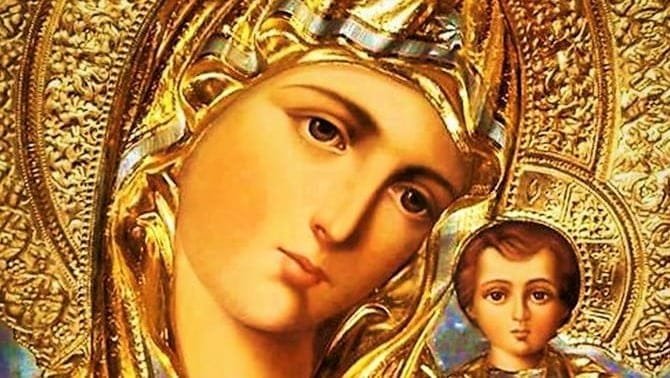
St. Peter’s Basilica
Thursday, 31 December 2020
[ Homily of the Holy Father, read by His Eminence Cardinal Giovanni Battista Re ]
Cardinal Re read the text that the Holy Father, Pope Francis, had prepared for this occasion. Due to his sciatica the Holy Father was unable to preside at the Vespers but provided the homily
Dearest brothers and sisters!
This evening celebration always has a double aspect: with the liturgy we enter the solemn feast of Mary Most Holy Mother of God; and at the same time we conclude the solar year with the great hymn of praise.
Tonight we give space to thanks for the year that is drawing to a close.
« Te Deum laudamus », «We praise you, God, we proclaim you Lord…». It might seem forced to thank God at the end of a year like this, marked by the pandemic. My thoughts go to families who have lost one or more members; let us think of those who have been sick, those who have suffered loneliness, those who have lost their jobs …
Sometimes someone asks: what is the point of a drama like this? We must not be in a hurry to answer this question. Not even God responds to our most distressing “whys” by resorting to “superior reasons”. God’s response follows the path of the incarnation, as the Antiphon at the Magnificat will soon sing : “For the great love with which he loved us, God sent his Son in the flesh of sin”.
A God who sacrificed human beings for a great design, even if it were the best possible, is certainly not the God who revealed Jesus Christ to us. God is father, “eternal Father”, and if his Son became man, it is through the immense compassion of the Father’s heart. God is Father and shepherd, and which shepherd would give even one sheep lost, thinking that in the meantime he has many left? No, this cynical and ruthless god does not exist. This is not the God whom we “praise” and “proclaim Lord”.
The good Samaritan, when he met that poor half-dead man on the side of the road, did not give him a speech to explain the meaning of what had happened to him, perhaps to convince him that it was really good for him. The Samaritan, moved by compassion , bent over that stranger, treating him as a brother and took care of him doing everything in his power ( cf.Lk 10 : 25-37).
Here, yes, perhaps we can find a “sense” of this drama that is the pandemic, as of other scourges that affect humanity: that of arousing in us compassion and provoking attitudes and gestures of closeness, care, solidarity, of affection.
This is what has happened and is also happening in Rome in recent months; and above all for this, tonight, we give thanks to God. We give thanks to God for the good things that happened in our city during the lockdown and, in general, in the time of the pandemic, which unfortunately is not over yet. There are many people who, without making any noise, have tried to make the weight of the test more bearable. With their daily commitment, animated by love for their neighbor, they realized those words of the hymn Te Deum : “Every day we bless you, we praise your name forever”. Because the blessing and praise that God most pleases is brotherly love.
Health care workers – doctors, nurses, nurses, volunteers – are at the forefront, and for this they are particularly in our prayers and deserve our gratitude; as well as many priests, male and female religious, who did their utmost with generosity and dedication. But tonight our thanks extend to all those who strive every day to keep their families going in the best possible way and to those who are committed to their service to the common good. Let us think of school administrators and teachers, who play an essential role in social life and who have to face a very complex situation. We also think with gratitude of the public administrators who know how to enhance all the good resources present in the city and in the territory, who are detached from private interests and also from those of their party. Because? Because they truly seek the good of all, the common good, the good starting from the most disadvantaged.
All this cannot happen without grace, without God’s mercy. We – we know this well from experience – in difficult moments we are led to defend ourselves – it is natural – we are led to protect ourselves and our loved ones, to protect our interests … How is it possible then that so many people, with no other reward than that of doing good, find the strength to worry about others? What drives them to give up something of themselves, of their own comfort, of their time, of their possessions, to give it to others? After all, even if they themselves do not think about it, the force of God pushes them, which is more powerful than our egoisms. For this reason, this evening we give praise to him, because we believe and know that all the good that is done day by day on earth comes, in the end, from him, comes from God. And looking to the future that awaits us, we again implore: “May your mercy always be with us, in you we have hoped”. In you is our trust and our hope.
HOMILY DURING THE FIRST VESPERS ON THE SOLEMNITY OF THE MOTHER OF GOD AND TE DEUM IN THANKSGIVING OF THE PAST YEAR
31 December 2019
“When the time had fully come, God sent forth his Son” (Gal 4:4).
The Son sent by the Father pitched his tent in Bethlehem of Ephrathah, that is “little to be among the clans of Judah” (Mic 5:2). He lived in Nazareth, a city never mentioned in the Scriptures if not to say: “Can anything good come out of Nazareth?” (Jn 1:46), and died rejected by the big city, by Jerusalem, crucified outside its walls. God’s decision is clear: he chooses a small and despised city to reveal his love and when he reaches Jerusalem he joins the sinners and the discarded. None of the city’s inhabitants realizes that the Son of God made man is walking along their streets, probably not even his disciples who will only fully understand the mystery within Jesus, at the Resurrection.
The words and signs of salvation that Jesus expresses in the city arouse wonder and temporary enthusiasm, but they are not understood in their full meaning. Shortly thereafter, they will no longer be remembered when the Roman Governor asks: “Do you want Jesus or Barabbas to be freed?”. Jesus was crucified outside the city, up high on Golgotha, condemned by the gaze of all the inhabitants and mocked by their sarcastic comments. But from there, from the Cross, the new tree of life, the power of God would attract all to him. And also the Mother of God who, at the foot of the Cross is Our Lady of Sorrows, is about to offer her motherhood to all mankind. The Mother of God is the Mother of the Church and her maternal tenderness reaches all men and women.
God has pitched his tent in cities … and he has never moved from there! His presence in cities, even in our city of Rome, “must not be contrived but found, uncovered” (Apostolic Exhortation, Evangelii Gaudium, n. 71). It is we who should ask God for the grace of new eyes capable of a “contemplative gaze, a gaze of faith which sees God dwelling in their homes, in their streets and squares” (ibid, n. 71). The prophets in the Scriptures warn against the temptation to link God’s presence only to the Temple (Jer 7:4): He lives in the midst of his people, walks with them and lives their life. His fidelity is concrete. It is closeness to his children’s daily life. Indeed when God wants to do new things through his Son, he does not start from the Temple but rather from the womb of a small, poor woman of his people. God’s choice is extraordinary! He does not change history through powerful men from civil and religious institutions, but rather starts with the women on the Empire’s peripheries like Mary and from their sterile wombs like Elizabeth’s.
In Psalm 147[146]:15 which we have just prayed, the Psalmist invites Jerusalem to glorify God because “he sends forth his command to the earth; his word runs swiftly”. By way of his Spirit which utters his Word to every human heart, God blesses his children and encourages them to work for peace in the city. Tonight I would like that our gaze over the city of Rome may grasp things from God’s point of view. The Lord rejoices at seeing how many achievements of good take place every day, how much effort and dedication is put into fostering fraternity. Rome is not only a complicated city, with many problems and inequalities, corruption and social tensions. Rome is a city in which God sends forth his Word which through the Spirit nestles in the heart of its dwellers and stirs them to believe, to have hope despite everything, to love, fighting for the good of all.
I am thinking of many brave people, believers and non-believers whom I have met over these years and who represent “the beating heart” of Rome. Truly God has never stopped changing history and the face of our city through the least and the poor people that live in it. He chooses them, inspires them, motivates them to take action, makes them supportive, spurs them to establish networks, create virtuous bonds, to build bridges, not walls. It is precisely through these thousands of rivulets of the living water of the Spirit that the Word of God fruitifies the city and, from barren, turns it into a “joyous mother of children: (Ps 113 [112]:9). And what does the Lord ask of the Church? He entrusts to us his Word and spurs us to throw ourselves into the throng, to involve ourselves in encounters and relationships with the inhabitants of the city so that his word may run swiftly. We are called to encounter the others and to listen to their life stories, their cry for help. Listening is already an act of love! Having time for others, to enter into dialogue, recognizing with a contemplative gaze the presence and action of God in their lives, to bear witness with actions more than with words to the new life of the Gospel is truly a service of love that changes reality. Indeed, thus doing, a new air circulates in our city and our church, a willingness to take up the journey again, to overcome the old mindset of opposition and fences in order to cooperate in building a more just and fraternal city together.
We must not be afraid or feel inadequate for this most important mission. Let us remember: God does not choose us because of our “goodness” but precisely because we are and we feel small. Let us thank him for his grace which has sustained us this year and let us joyfully lift a hymn of praise to him.
SOURCE: http://www.vatican.va/content/francesco/en/homilies/2019/documents/papa-francesco_20191231_omelia-tedeum.html
EMPHASIS MINE
HOMILY DURING THE FIRST VESPERS ON THE SOLEMNITY OF THE MOTHER OF GOD AND TE DEUM IN THANKSGIVING OF THE PAST YEAR
31 December 2018
At the end of another year, the word of God accompanies us with two verses from the Apostle Paul (cf. Gal 4:4-5). They are concise yet full of meaning: a synthesis of the New Testament that sheds light on a “critical” moment like this, the passage from one year to the next.
The first words that strike us are “the fullness of time”. This expresses a particular nuance in the final hours of this calendar year, in which we still feel the need of something meaningful to fill the passage of time. Something, or better, someone. That “someone” has come. God sent him, “his Son”, Jesus, whose birth we have just celebrated. He was born of a woman, the Virgin Mary; born under the law, a Jewish child, subject to the Lord’s law. Yet how is this possible? How can this be the sign that the fullness of time has come? At his birth, the Child is for all purposes invisible and insignificant, yet in a little more than thirty years, he will release an unprecedented power, one that remains today and will endure for all time. That power is called Love. It is love that gives fullness to everything, even to time. Jesus is the “quintessence” of all God’s love in one human being.
Saint Paul clearly tells us why the Son of God was born in time, as well as the mission that the Father gave him: he was born “to redeem”. This is the second word that strikes us: to redeem, to ransom, is to emancipate from slavery and to restore to liberty: to the dignity and freedom proper to sons and daughters. The slavery to which the Apostle refers is that of the “Law”, understood as a series of commands to be obeyed, a Law that, while indeed pedagogical and instructive, does not free us from our state of sin. Indeed, it “nails” us to that state, preventing us from attaining the freedom of children.
God the Father sent his only begotten Son into the world in order to eradicate from the heart of men and women the ancient slavery of sin and thus restore to them their dignity. From the heart, as the Gospel teaches us (cf. Mk 7:21-23), come all evil intentions, the iniquities that corrupt life and relationships. And here we must pause to reflect with sadness and remorse because, also during this year which is coming to a close, so many men and women have experienced and are experiencing conditions of slavery, not worthy of human persons.
Here too in our city of Rome there are brothers and sisters who, for various reasons, find themselves in this situation. I think especially of so many people who are homeless. There are over ten thousand of them. In the winter months, their situation is especially difficult. All of them are sons and daughters of God, but various forms of slavery, sometimes quite complex, have forced them to live at the limits of human dignity. Jesus himself was born in a similar situation, though not by chance or accident. He desired to be born this way, in order to reveal the love of God for the weak and the poor, and thus to sow in the world the seeds of God’s kingdom, a kingdom of justice, love and peace, where no one is a slave, but all are brothers and sisters, children of the one Father.
The Church in Rome does not want to be indifferent to the forms of slavery today, nor simply observe them and offer assistance, but rather it wants to be immersed into this reality, close to these people and to these situations.
I like to encourage this form of maternity of the Church as we celebrate the motherhood of the Blessed Virgin Mary. Contemplating this mystery, we recognize that God was “born of a woman” so that we might receive the fullness of our humanity, “the adoption as children”. By his abasement we have been saved. From his smallness has come our greatness. From his fragility, our strength. From making himself a servant, our freedom.
What name shall we give this, if not Love? The love of the Father, of the Son and of the Holy Spirit, to which Holy Mother Church raises worldwide her hymn of praise and thanksgiving.
SOURCE: http://www.vatican.va/content/francesco/en/homilies/2018/documents/papa-francesco_20181231_te-deum.html
EMPHASIS MINE.
SEE AS WELL:
JAN. 1, 2025: CATHOLIC REFLECTION ON THE UPCOMING NEW YEAR HERE.
Stay updated: subscribe by email for free TO OUR NEW WEBSITE www.catholicsstrivingforholiness.org (PUT YOUR EMAIL IN THE SUBSCRIBE WIDGET).
We are also in www.fb.com/Catholicsstrivingforholiness. Kindly help more people in their Christian life by liking our page and inviting your family, friends and relatives to do so as well. Thanks in advance and God bless you and your loved ones! Fr. Rolly Arjonillo
